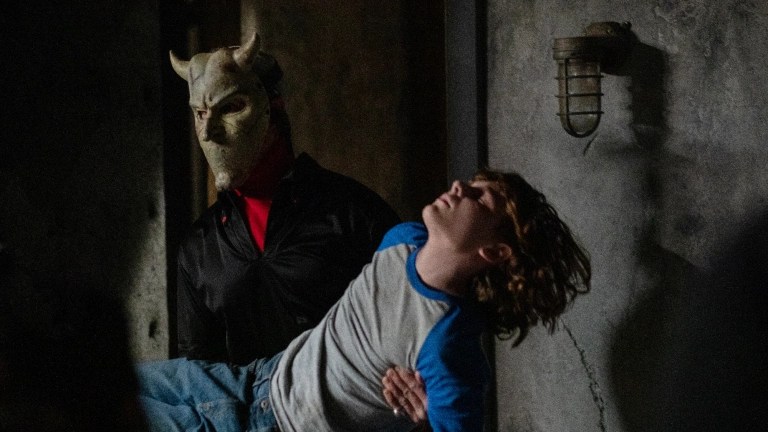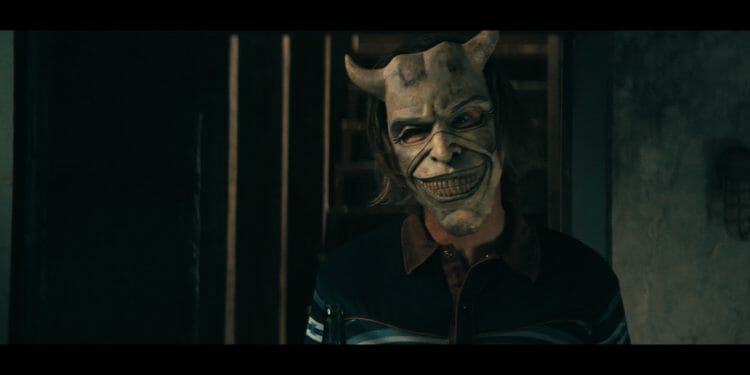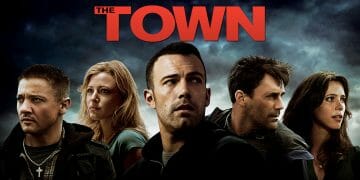“The Grabber” (Ethan Hawke), a disguised child abductor, is the focus of “The Black Phone,” a horror thriller. Finney, a 13-year-old girl, is kidnapped by the Grabber and kept prisoner in a soundproof cellar in Colorado in the 1970s. This time, the kidnapper is confronted with a new challenge: a slow phone connection, which allows the hostage to solicit assistance from past victims.

However, despite its otherworldly underpinnings, the film conveys some chillingly plausible horrors. The adversary, a psychopath who kidnaps and murders children, has a disturbing resemblance to real-life criminals. What if we peek behind the curtain and discover whether the film “The Black Phone” is based on reality?
Table of Contents
ToggleDoes the story of The Black Phone exist?
“The Black Phone” is a fictionalized account of a real-life incident. It is based on the short tale of the same name written in 2004 by Joe Hill, a fantastic writer and the son of Stephen King, the famed horror author. Scott Derrickson, the filmmaker of the film, was inspired by real-life events from his boyhood. Derrickson and co-writer C. Robert Cargill included a lot of personal aspects into the screenplay, which is significantly different from Hill’s short narrative.
In an interview, Derrickson disclosed that he had been in treatment for a few years because of his trauma as a youngster. As a result, the film takes place in North Denver, where the filmmaker grew up and recalled his neighborhood as chaotic with a lot of fighting and violence. Finney, the film’s protagonist, likewise lives in a dangerous area.
What does the director have to say about it?
The most distressing feature of the picture is that the director’s background is hinted at in the film’s recurring theme of disappearances. In an interview, Derrickson described how a neighbor’s mother had been kidnapped and slain when he was nine years old. The filmmaker grew up in an area where the dread of abduction and death seemed to permeate the air.
The filmmaker contemplated adapting the 1959 French psychological drama ‘400 Blows,’ based on director François Truffaut’s own adolescent experiences, for his own film. However, Derrickson’s influences quickly multiplied, culminating in ‘The Black Phone.’
Guillermo del Toro’s 2001 supernatural horror film ‘The Devil’s Backbone and its depiction of ghost children affected the filmmaker. Toro’s DVD commentary provided Derrickson with a helpful casting tip.
He says that whenever he employs a kid actor, the Mexican director ensures that the actor can impersonate him. The director might teach the young actor to copy the appropriate actions if the child cannot accept direction. Also included are many children, at least four of whom Derrickson was acquainted with in middle school. This is a significant addition to Joe Hill’s short narrative in the film adaptation.
How are roles influenced?
The children’s characters are also handled as if they were influenced by real-life and fictitious sources. As in John Irving’s 1989 book ‘A Prayer for Owen Meany,’ the protagonist, Owen Meany, feels that his life is headed toward a predetermined outcome. Finney is given tasks by the kids in the film, who have all been victims of the Grabber in the past.
Even though ‘The Black Phone’ is a horror film with supernatural aspects, it has an almost terrifying amount of real-life influence. As a result, much of the film’s darker parts are derived from Derrickson’s youth. On the other hand, the filmmaker has used his life experiences as a springboard for creating the fantastical universe of ‘The Black Phone.’






